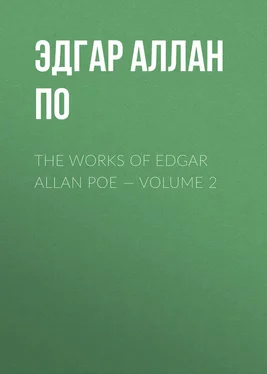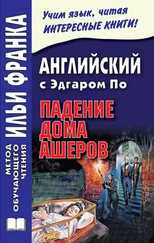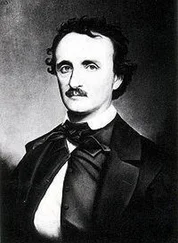Эдгар По - The Works of Edgar Allan Poe — Volume 2
Здесь есть возможность читать онлайн «Эдгар По - The Works of Edgar Allan Poe — Volume 2» — ознакомительный отрывок электронной книги совершенно бесплатно, а после прочтения отрывка купить полную версию. В некоторых случаях можно слушать аудио, скачать через торрент в формате fb2 и присутствует краткое содержание. Жанр: literature_19, foreign_antique, foreign_prose, на английском языке. Описание произведения, (предисловие) а так же отзывы посетителей доступны на портале библиотеки ЛибКат.
- Название:The Works of Edgar Allan Poe — Volume 2
- Автор:
- Жанр:
- Год:неизвестен
- ISBN:нет данных
- Рейтинг книги:5 / 5. Голосов: 1
-
Избранное:Добавить в избранное
- Отзывы:
-
Ваша оценка:
- 100
- 1
- 2
- 3
- 4
- 5
The Works of Edgar Allan Poe — Volume 2: краткое содержание, описание и аннотация
Предлагаем к чтению аннотацию, описание, краткое содержание или предисловие (зависит от того, что написал сам автор книги «The Works of Edgar Allan Poe — Volume 2»). Если вы не нашли необходимую информацию о книге — напишите в комментариях, мы постараемся отыскать её.
The Works of Edgar Allan Poe — Volume 2 — читать онлайн ознакомительный отрывок
Ниже представлен текст книги, разбитый по страницам. Система сохранения места последней прочитанной страницы, позволяет с удобством читать онлайн бесплатно книгу «The Works of Edgar Allan Poe — Volume 2», без необходимости каждый раз заново искать на чём Вы остановились. Поставьте закладку, и сможете в любой момент перейти на страницу, на которой закончили чтение.
Интервал:
Закладка:
“But is this really the poet?” I asked. “There are two brothers, I know; and both have attained reputation in letters. The Minister I believe has written learnedly on the Differential Calculus. He is a mathematician, and no poet.”
“You are mistaken; I know him well; he is both. As poet and mathematician, he would reason well; as mere mathematician, he could not have reasoned at all, and thus would have been at the mercy of the Prefect.”
“You surprise me,” I said, “by these opinions, which have been contradicted by the voice of the world. You do not mean to set at naught the well-digested idea of centuries. The mathematical reason has long been regarded as the reason par excellence.”
“‘Il y a à parièr,’” replied Dupin, quoting from Chamfort, “‘que toute idée publique, toute convention reçue est une sottise, car elle a convenue au plus grand nombre.’ The mathematicians, I grant you, have done their best to promulgate the popular error to which you allude, and which is none the less an error for its promulgation as truth. With an art worthy a better cause, for example, they have insinuated the term ‘analysis’ into application to algebra. The French are the originators of this particular deception; but if a term is of any importance — if words derive any value from applicability — then ‘analysis’ conveys ‘algebra’ about as much as, in Latin, ‘ambitus’ implies ‘ambition,’ ‘religio’ ‘religion,’ or ‘homines honesti,’ a set of honorablemen.”
“You have a quarrel on hand, I see,” said I, “with some of the algebraists of Paris; but proceed.”
“I dispute the availability, and thus the value, of that reason which is cultivated in any especial form other than the abstractly logical. I dispute, in particular, the reason educed by mathematical study. The mathematics are the science of form and quantity; mathematical reasoning is merely logic applied to observation upon form and quantity. The great error lies in supposing that even the truths of what is called pure algebra, are abstract or general truths. And this error is so egregious that I am confounded at the universality with which it has been received. Mathematical axioms are not axioms of general truth. What is true of relation — of form and quantity — is often grossly false in regard to morals, for example. In this latter science it is very usually untrue that the aggregated parts are equal to the whole. In chemistry also the axiom fails. In the consideration of motive it fails; for two motives, each of a given value, have not, necessarily, a value when united, equal to the sum of their values apart. There are numerous other mathematical truths which are only truths within the limits of relation. But the mathematician argues, from his finite truths, through habit, as if they were of an absolutely general applicability — as the world indeed imagines them to be. Bryant, in his very learned ‘Mythology,’ mentions an analogous source of error, when he says that ‘although the Pagan fables are not believed, yet we forget ourselves continually, and make inferences from them as existing realities.’ With the algebraists, however, who are Pagans themselves, the ‘Pagan fables’ are believed, and the inferences are made, not so much through lapse of memory, as through an unaccountable addling of the brains. In short, I never yet encountered the mere mathematician who could be trusted out of equal roots, or one who did not clandestinely hold it as a point of his faith that x 2+px was absolutely and unconditionally equal to q. Say to one of these gentlemen, by way of experiment, if you please, that you believe occasions may occur where x 2+px is not altogether equal to q, and, having made him understand what you mean, get out of his reach as speedily as convenient, for, beyond doubt, he will endeavor to knock you down.
“I mean to say,” continued Dupin, while I merely laughed at his last observations, “that if the Minister had been no more than a mathematician, the Prefect would have been under no necessity of giving me this check. I know him, however, as both mathematician and poet, and my measures were adapted to his capacity, with reference to the circumstances by which he was surrounded. I knew him as a courtier, too, and as a bold intriguant. Such a man, I considered, could not fail to be aware of the ordinary policial modes of action. He could not have failed to anticipate — and events have proved that he did not fail to anticipate — the waylayings to which he was subjected. He must have foreseen, I reflected, the secret investigations of his premises. His frequent absences from home at night, which were hailed by the Prefect as certain aids to his success, I regarded only as ruses, to afford opportunity for thorough search to the police, and thus the sooner to impress them with the conviction to which G — , in fact, did finally arrive — the conviction that the letter was not upon the premises. I felt, also, that the whole train of thought, which I was at some pains in detailing to you just now, concerning the invariable principle of policial action in searches for articles concealed — I felt that this whole train of thought would necessarily pass through the mind of the Minister. It would imperatively lead him to despise all the ordinary nooks of concealment. He could not, I reflected, be so weak as not to see that the most intricate and remote recess of his hotel would be as open as his commonest closets to the eyes, to the probes, to the gimlets, and to the microscopes of the Prefect. I saw, in fine, that he would be driven, as a matter of course, to simplicity, if not deliberately induced to it as a matter of choice. You will remember, perhaps, how desperately the Prefect laughed when I suggested, upon our first interview, that it was just possible this mystery troubled him so much on account of its being so very self-evident.”
“Yes,” said I, “I remember his merriment well. I really thought he would have fallen into convulsions.”
“The material world,” continued Dupin, “abounds with very strict analogies to the immaterial; and thus some color of truth has been given to the rhetorical dogma, that metaphor, or simile, may be made to strengthen an argument, as well as to embellish a description. The principle of the vis inertiæ, for example, seems to be identical in physics and metaphysics. It is not more true in the former, that a large body is with more difficulty set in motion than a smaller one, and that its subsequent momentum is commensurate with this difficulty, than it is, in the latter, that intellects of the vaster capacity, while more forcible, more constant, and more eventful in their movements than those of inferior grade, are yet the less readily moved, and more embarrassed and full of hesitation in the first few steps of their progress. Again: have you ever noticed which of the street signs, over the shop-doors, are the most attractive of attention?”
“I have never given the matter a thought,” I said.
“There is a game of puzzles,” he resumed, “which is played upon a map. One party playing requires another to find a given word — the name of town, river, state or empire — any word, in short, upon the motley and perplexed surface of the chart. A novice in the game generally seeks to embarrass his opponents by giving them the most minutely lettered names; but the adept selects such words as stretch, in large characters, from one end of the chart to the other. These, like the over-largely lettered signs and placards of the street, escape observation by dint of being excessively obvious; and here the physical oversight is precisely analogous with the moral inapprehension by which the intellect suffers to pass unnoticed those considerations which are too obtrusively and too palpably self-evident. But this is a point, it appears, somewhat above or beneath the understanding of the Prefect. He never once thought it probable, or possible, that the Minister had deposited the letter immediately beneath the nose of the whole world, by way of best preventing any portion of that world from perceiving it.
Читать дальшеИнтервал:
Закладка:
Похожие книги на «The Works of Edgar Allan Poe — Volume 2»
Представляем Вашему вниманию похожие книги на «The Works of Edgar Allan Poe — Volume 2» списком для выбора. Мы отобрали схожую по названию и смыслу литературу в надежде предоставить читателям больше вариантов отыскать новые, интересные, ещё непрочитанные произведения.
Обсуждение, отзывы о книге «The Works of Edgar Allan Poe — Volume 2» и просто собственные мнения читателей. Оставьте ваши комментарии, напишите, что Вы думаете о произведении, его смысле или главных героях. Укажите что конкретно понравилось, а что нет, и почему Вы так считаете.












